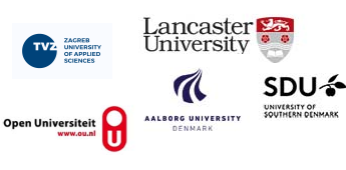

Conference Themes & Call for Papers
Since 1998 the biennial Networked Learning Conference has been an opportunity to participate in a forum for the critical examination and analysis of research in networked learning – particularly in Higher Education and lifelong learning. Networked learning has become a broader area of inquiry over the years bringing together research in education and organisations spanning formal and informal learning settings. It is a conference that has been particularly concerned with critical perspectives, theory, pedagogical values, analysis, practice based research and designs for learning. The focus of the conference has been research and practice that addresses relational and interactional aspects of learning and development with an emphasis on dialogical learning, collaborative and cooperative learning and learning in social networks.
Conference Themes
- Theories, methodologies, and design for Networked Learning
- Methods, research design, data and analysis in Networked learning (e.g. phenomenography, social network analysis, ANT and post-ANT, learning analytics, big data)
- Critical pedagogy and networked learning praxis
- Networked learning in the public arena (open learning and networked publics)
- Knowledge networks and digital cultures (e.g. online activism and hacker culture)
- Learning on the move; places and spaces for networked learning
- Learning at scale and across boundaries, (in)formal, professional and lifelong networked learning
- Debates and emerging issues (e.g. post-humanism, Anthropocene, globalisation, inequality)
Call for papers
All submissions are peer reviewed, and accepted papers published in the conference proceedings, with selected papers published in an edited book as part of the Springer book series "Research in Networked Learning".
We invite proposals of the following kind addressing conference themes:
- Symposia: 1.5 hours: You convene, organise and invite 3/4 participants on a chosen theme.
- Individual long research papers, and papers critically examining conceptual issues
- Short Papers on research in progress (Pecha Kucha presentation)
Each individual paper proposal should take the form of a Full Paper of up to 8 pages maximum (including references). The Symposium Organiser collects all papers from the authors, and precedes them with an outline of the symposium, stating title/theme and providing a rational for the symposium. Symposia organisers are free to decide on how their Symposium is run eg as an interactive panel-participants discussion; ‘traditional’ presentation of papers with short questions and answers; some other method.
- Individual research papers, and papers critically examining conceptual issues.
Each individual paper proposal should take the form of a Full Paper of up to 8 pages maximum (including references).
- Short papers (to be presented as Pecha Kucha)
Each short paper proposal should take the form of a Full Paper with a minimum of 2 pages and maximum of 4 pages (including references).
A Pecha Kucha (pronounced: "peh-cha-ku-cha'') presentation is an informal, engaging and highly visual presentation of 20 slides, each one exactly 20 seconds, for a total presentation time of 6 minutes, 40 seconds.These sessions are intended to communicate quickly and efficiently research in progress.
Full details on submission & templates.
Joint Organising Institutions
Open University of The Netherlands
| Past Conference Proceedings | Contact |